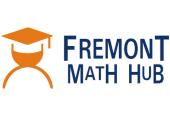Homeschooling gives you the freedom to tailor education to your child’s unique needs, especially in subjects like math. But keeping math lessons fun and engaging can sometimes feel challenging. By incorporating fun math activities into your lessons, you can transform learning into an engaging and enjoyable experience. At the same time, following practical homeschooling math tips helps your child not only understand math concepts but also build a lasting love for the subject.
This guide will share easy-to-follow strategies, hands-on activities, and helpful tips to make homeschooling math more interactive, effective, and enjoyable for kids of all ages.

Table of Contents
- Understanding the Importance of Fun in Math
- Top Fun Math Activities for Homeschoolers
- Effective Homeschooling Math Tips
- Choosing the Right Resources
- Conclusion
Understanding the Importance of Fun in Math
Adding fun to math lessons is crucial for helping children build a positive attitude toward the subject. When children engage in fun math activities, they are more likely to retain information, understand concepts deeply, and approach challenging topics with confidence. Research shows that hands-on, interactive experiences transform abstract ideas into tangible learning, making subjects like fractions, multiplication, and geometry easier to understand and apply in real-life situations.
By combining enjoyable activities with structured learning, homeschooling parents can ignite curiosity, reduce math anxiety, and help children view obstacles as opportunities for exploration and growth. This approach not only strengthens problem-solving skills but also fosters a lifelong interest in learning, turning math into a subject children look forward to rather than fear.
Top Fun Math Activities for Homeschoolers
Incorporating a mix of fun math activities helps meet different learning styles and keeps children engaged. Here are some practical ideas you can try at home:
1. Math Games
Games like “Math Bingo,” “Number Jeopardy,” or interactive online quizzes turn math practice into a fun experience. These games transform repetitive drills into exciting challenges, enabling children to enhance their speed, accuracy, and problem-solving skills while having fun.
2. Hands-On Manipulatives
Using physical objects such as counting bears, base-ten blocks, fraction tiles, or geometric shapes helps children visualize math concepts. Manipulatives make abstract ideas like addition, subtraction, multiplication, and division tangible, supporting better understanding.
3. Real-Life Applications
Incorporate math into everyday activities to show its real-world value. Cooking teaches measurements and fractions, while shopping introduces budgeting, calculating totals, and understanding discounts. Even small tasks like comparing distances on a walk or sorting household items reinforce practical math skills.
4. Math Art Projects
Combine creativity with math through art projects. Activities like creating tessellations, symmetry drawings, origami shapes, or pattern-based designs encourage children to explore geometry, patterns, and spatial reasoning. These projects also show how math connects to art, making learning more engaging.
5. Outdoor Math Hunts
Turn math into an adventure with outdoor scavenger hunts or games. Children can solve puzzles to find clues, count natural objects, or estimate distances. These activities combine movement with learning, which is especially helpful for kinesthetic learners who learn best through active participation.
6. Story-Based Math Challenges
Integrate math into storytelling with word problems or math-based narratives. This approach helps children see math in context, improves comprehension, and strengthens critical thinking. Story problems can range from basic addition and subtraction to more complex problem-solving exercises, keeping learning interactive and meaningful.

Effective Homeschooling Math Tips
To make math learning more effective at home, try these practical homeschooling math tips:
- Establish a Routine: A consistent schedule helps children know what to expect and builds confidence. Even short, focused daily practice sessions strengthen skills over time.
- Use Different Teaching Methods: Combine visual, auditory, and hands-on learning to suit your child’s learning style. Changing methods regularly keeps lessons engaging and helps children understand tricky concepts.
- Encourage Problem-Solving: Give challenges that require critical thinking instead of just memorization. Ask children to explain their reasoning and explore multiple ways to find solutions.
- Positive Reinforcement: Celebrate every success, no matter how small, and support your child when they make mistakes. Encouragement fosters a growth mindset and resilience.
- Adapt to Your Child’s Pace: Let children master one concept before moving to the next. Personalized pacing ensures a strong foundational understanding and prevents frustration.
- Use Technology Wisely: Interactive math apps, online games, and educational websites can supplement hands-on learning and provide instant feedback.
- Review and Reflect Regularly: Revisit previously learned concepts to reinforce understanding. Reflection helps children track their progress and identify areas that need more practice.
Choosing the Right Resources
Choosing the right learning materials is essential for effective homeschooling, especially when it comes to math. Parents should select resources that align with their child’s individual learning style while offering interactive, hands-on experiences that make abstract concepts easier to grasp. Many online platforms provide structured lesson plans, printable worksheets, and video tutorials, all designed to keep children engaged and make math both understandable and enjoyable.
Fremont Math Hub offers a wide range of tools and programs specifically designed to enhance math learning at home. Their resources include interactive activities, skill-building exercises, and expert guidance, helping parents create a structured yet enjoyable learning environment. When these resources are paired with fun math activities and practical homeschooling math tips, children benefit from a well-rounded approach that supports understanding, retention, and a positive attitude toward math.

Conclusion
Integrating fun math activities into your homeschooling routine, along with practical homeschooling math tips, creates an engaging and effective learning environment. These strategies help children not only grasp mathematical concepts but also develop curiosity, critical thinking, problem-solving skills, and a positive attitude toward learning.
By selecting the right resources, keeping a consistent schedule, and incorporating interactive activities, homeschooling parents can make math an enjoyable and rewarding subject. For additional support and expertly designed programs, explore Fremont Math Hub. Their tools and guidance help simplify teaching, enhance learning, and build a strong foundation in math, making it easier for children to succeed and enjoy the learning process.


